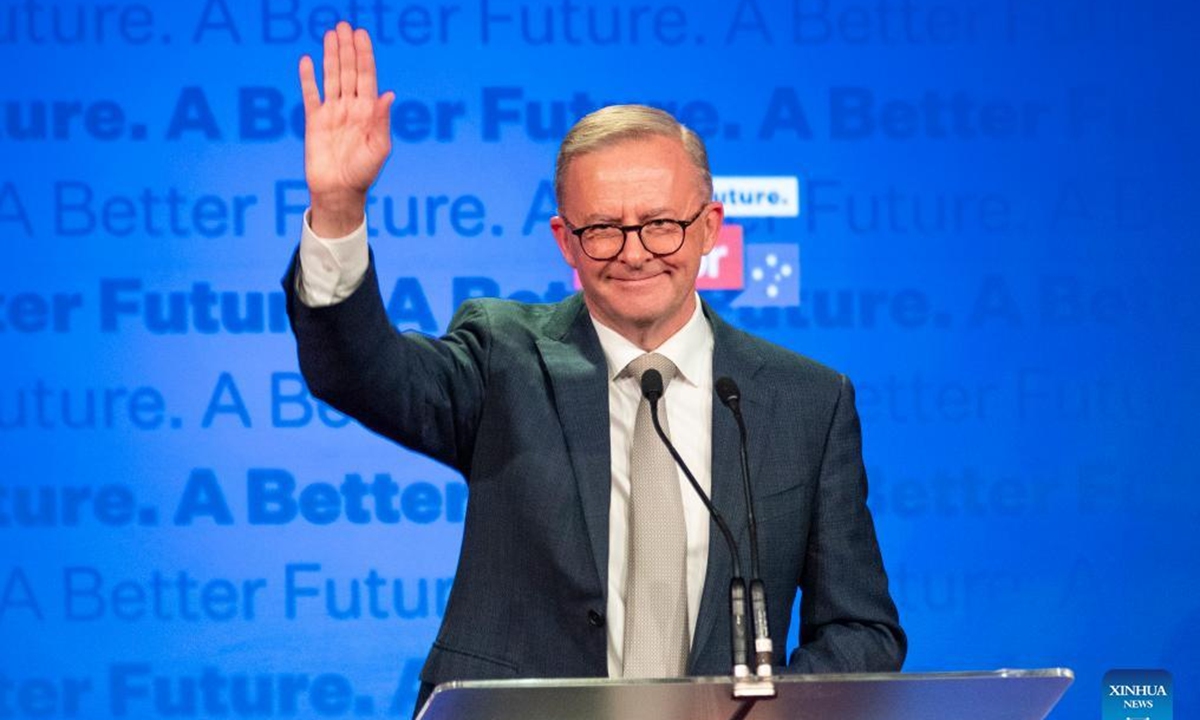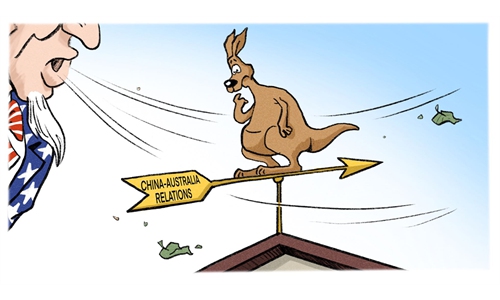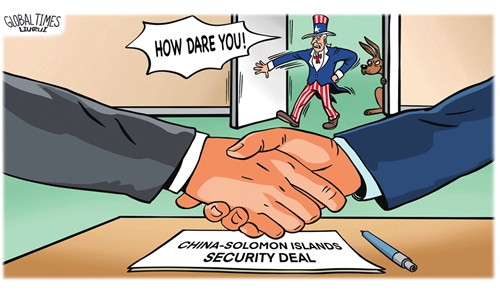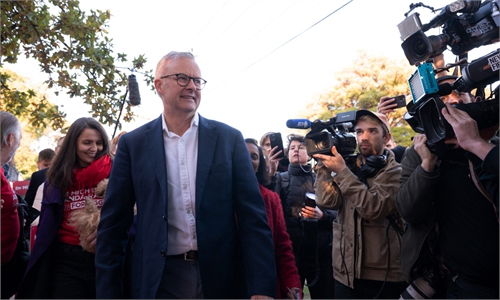
Anthony Albanese gestures as addressing supporters in Sydney, Australia, May 21, 2022. Photo: Xinhua
Anthony Albanese, victorious in the recently concluded Australian Federal Election, was sworn in on Monday as new Prime Minister of Australia. Almost immediately after, Albanese is set to appear at the Quad summit in Tokyo on Tuesday, accompanied by Penny Wong, his newly appointed foreign minister. What might Australia's newly elected leader mean for the Quad? And will he make a difference?When it comes to Australia's future diplomacy, a likely scenario could be - the new Labor foreign policy strategy may land in the hands of foreign minister, rather than prime minister. Albanese previously served as deputy prime minister of Australia, as well as minister for infrastructure and transport. His experience sees him specialized mostly in handling domestic affairs, coinciding with a lack of experience in diplomacy. This may force him to rely more on Penny Wong in coping with the foreign affairs of Australia.
Yet be it the Labor Party or the Liberal-National coalition, both parties share the same supporting stance regarding Australia's participation in the Quad and AUKUS. Still, there are some differences worth noting. The means and focus the new Labor administration will place on the Quad may be different to that of its predecessor, and are anticipated to place more significance on climate change, cooperation in the Pacific and sea routes across the region, than simply acting as the anti-China errand boy of the US empire which Scott Morrison prided himself on.
For the moment, the new Labor government has not yet formed a stable or consistent China policy. Earlier this year, Penny Wong accused Morrison of "desperately playing politics on China whenever he's in trouble," and that deliberately "amping up" the prospect of war against China was "the most dangerous election tactic in Australian history." Yet during the election campaign, Albanese suggested that China has changed and has become "more belligerent."
On the other hand, Albanese also said that a Labor government would deal with China "in a mature way", suggesting that the Labor administration will lower the aggressive anti-China rhetoric and will ultimately prevent the continuing nosediving of Beijing-Canberra ties.
This signals that the new Australian government may try to deal with China through a logic of international politics, as opposed to domestic politics, and will to some extent, reduce the disturbances of Australia's internal affairs on the China-Australia relationship. This will see Labor's approach to China being less simple and crude than that of the Morrison administration, and will attempt to make it more flexible.
It should be expected that Canberra will continue to participate in the Quad and the implementation of the AUKUS agreement. The Labor government is also anticipated to try and intensify Australia's ties with the Pacific countries and ASEAN and boost its multilateral diplomacy, instead of relying too heavily on the US as the coalition did. The Australian Labor party has adhered to open multilateralism instead of depending solely on US style group politics and bloc confrontation.
In the upcoming Quad summit, Australia is likely to try and lead the Quad's cooperation on climate change, as Labor has long pledged to "make climate central to US alliance."
Some observers say the Australian election may have sent the Tuesday Quad summit a secret package which has left people unsure whether to be surprised or scared. Frankly, when it comes to the Quad, a Labor government won't make any major changes, apart from perhaps small differences. This is exactly the challenge and an urgent task Australia confronts - will it open its own playbook on diplomacy, or endlessly follow that of the US?
The author is an adjunct research fellow at the Center for Australian Studies, China University of Mining and Technology. opinion@globaltimes.com.cn



